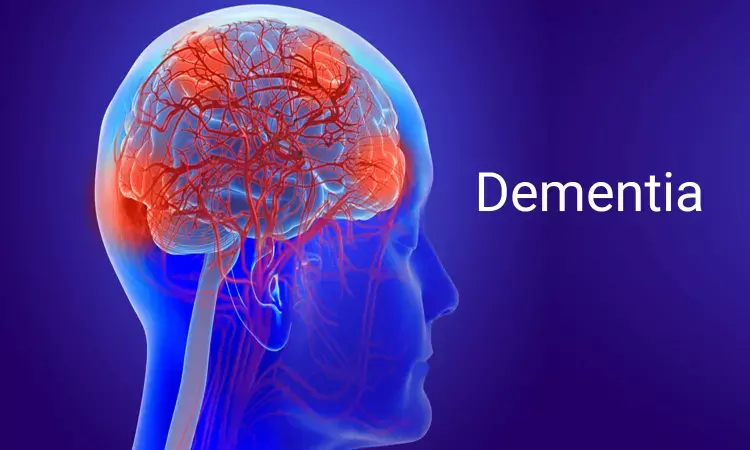- Home
- Medical news & Guidelines
- Anesthesiology
- Cardiology and CTVS
- Critical Care
- Dentistry
- Dermatology
- Diabetes and Endocrinology
- ENT
- Gastroenterology
- Medicine
- Nephrology
- Neurology
- Obstretics-Gynaecology
- Oncology
- Ophthalmology
- Orthopaedics
- Pediatrics-Neonatology
- Psychiatry
- Pulmonology
- Radiology
- Surgery
- Urology
- Laboratory Medicine
- Diet
- Nursing
- Paramedical
- Physiotherapy
- Health news
- Fact Check
- Bone Health Fact Check
- Brain Health Fact Check
- Cancer Related Fact Check
- Child Care Fact Check
- Dental and oral health fact check
- Diabetes and metabolic health fact check
- Diet and Nutrition Fact Check
- Eye and ENT Care Fact Check
- Fitness fact check
- Gut health fact check
- Heart health fact check
- Kidney health fact check
- Medical education fact check
- Men's health fact check
- Respiratory fact check
- Skin and hair care fact check
- Vaccine and Immunization fact check
- Women's health fact check
- AYUSH
- State News
- Andaman and Nicobar Islands
- Andhra Pradesh
- Arunachal Pradesh
- Assam
- Bihar
- Chandigarh
- Chattisgarh
- Dadra and Nagar Haveli
- Daman and Diu
- Delhi
- Goa
- Gujarat
- Haryana
- Himachal Pradesh
- Jammu & Kashmir
- Jharkhand
- Karnataka
- Kerala
- Ladakh
- Lakshadweep
- Madhya Pradesh
- Maharashtra
- Manipur
- Meghalaya
- Mizoram
- Nagaland
- Odisha
- Puducherry
- Punjab
- Rajasthan
- Sikkim
- Tamil Nadu
- Telangana
- Tripura
- Uttar Pradesh
- Uttrakhand
- West Bengal
- Medical Education
- Industry
People with postural hypotension may have higher risk of dementia

MINNEAPOLIS - Researchers have found that people with postural hypotension have greater likelihood of developing dementia later in life.
Some people who feel dizzy or lightheaded when they stand up may have an increased risk of developing dementia years later, according to a new study published in Neurology®, the medical journal of the American Academy of Neurology.
The condition, called orthostatic hypotension, occurs when people experience a sudden drop in blood pressure when they stand up.
The study found the link with dementia only in people who have a drop in their systolic blood pressure, not in people with only a drop in their diastolic blood pressure or their blood pressure overall.
Systolic is the first, or top, number in a blood pressure reading and systolic orthostatic hypotension was defined as a drop of at least 15 mmHg after standing from a sitting position.
"People's blood pressure when they move from sitting to standing should be monitored," said study author Laure Rouch, Pharm.D., Ph.D., of the University of California, San Francisco. "It's possible that controlling these blood pressure drops could be a promising way to help preserve people's thinking and memory skills as they age."
The study involved 2,131 people who were an average age of 73 and did not have dementia when they enrolled. Their blood pressure readings were taken at the start of the study and then one, three and five years later. A total of 15% had orthostatic hypotension, 9% had systolic orthostatic hypotension and 6% had diastolic orthostatic hypotension.
Over the next 12 years, the participants were evaluated to see if anyone developed dementia. A total of 462 people, or 22%, did develop the disease.
The people with systolic orthostatic hypotension were nearly 40% more likely to develop dementia than those who did not have the condition. Fifty of the 192 with systolic orthostatic hypotension, or 26%, developed dementia, compared to 412 of the 1,939 people without it, or 21%. When researchers adjusted for other factors that could affect dementia risk, such as diabetes, smoking and alcohol use, those with systolic orthostatic hypotension were 37% more likely to develop dementia.
The researchers also found that people whose sitting-to-standing systolic blood pressure readings changed the most from visit to visit were more likely to develop dementia years later than people whose readings were more stable.
The people were divided into three groups based on how much their readings changed over time. A total of 24% of people in the group with the most fluctuation in systolic readings later developed dementia, compared to 19% of the people in the group with the least fluctuation. When researchers adjusted for other factors affecting dementia risk, those in the highest group were 35% more likely to develop dementia than those in the lowest group.
Rouch noted that the study is observational and does not show cause and effect. It only shows an association between the blood pressure readings and the development of dementia. Another limitation of the study was that the diagnosis of dementia was made without distinction between Alzheimer's disease and vascular dementia.
Hina Zahid Joined Medical Dialogue in 2017 with a passion to work as a Reporter. She coordinates with various national and international journals and association and covers all the stories related to Medical guidelines, Medical Journals, rare medical surgeries as well as all the updates in the medical field. Email: editorial@medicaldialogues.in. Contact no. 011-43720751
Dr Kamal Kant Kohli-MBBS, DTCD- a chest specialist with more than 30 years of practice and a flair for writing clinical articles, Dr Kamal Kant Kohli joined Medical Dialogues as a Chief Editor of Medical News. Besides writing articles, as an editor, he proofreads and verifies all the medical content published on Medical Dialogues including those coming from journals, studies,medical conferences,guidelines etc. Email: drkohli@medicaldialogues.in. Contact no. 011-43720751


